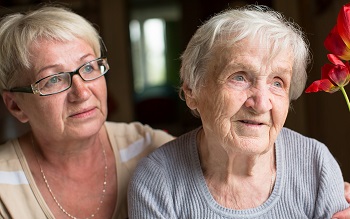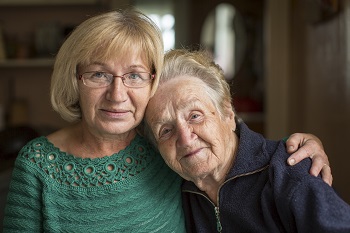
Have you noticed your loved one becoming a little bit forgetful, having difficulties with holding conversations, or seeming different from their usual self, but are not sure if this is just a normal part of ageing?
While there are no definitive rules behind diagnosing dementia, there are many common symptoms of the condition. Learning to spot these can make your loved one’s journey with the condition more comfortable through putting the correct support in place early on.
Personality, general health, and social activities can all alter the impact of dementia. It is important to note that no two people will experience the condition in exactly the same way, so it can sometimes be difficult to spot mannerisms and signs – especially in the initial stages.
Typical early symptoms of dementia
You may see your loved one display just one of these symptoms, or a combination of a few, but it helps to be aware of the subtle signs. The symptoms depend on the area of the brain that is damaged and so Alzheimer’s, vascular, and Lewy body dementia all come with differing indicators.
Memory loss
One of the most common factors associated with dementia is the loss of memory. You may notice that someone you are close to is repeating questions, forgetting names and faces, and becoming unable to recall previous conversations. While instances of forgetfulness are not uncommon, and many are just a part of the ageing process, people who have dementia may find it difficult to recall important information or know the context.
Disorientation
While it is usual to occasionally forget which day of the week it is, or lose track of time, individuals who are living with dementia can become lost in familiar places, and confuse night and day.
Language difficulties
Struggling to maintain conversations can be a symptom of dementia. It may involve searching for the right words and sometimes substituting them with unusual choices. Your loved one may find verbal and written communication difficult to understand.

Personality changes
Your loved one may start to display behaviour that is different to their usual personality. This can sometimes be difficult to pinpoint, but agitation, suspicion and irritability are all signs of dementia. They can also become more emotional if their memory starts to cause difficulties.
Decreased sense of judgement
Whether it’s bundling up on a hot day, undressing during winter or making comments that are inappropriate for the audience or situation, a lack of judgement can be an indicator of dementia.
Lack of initiative
We all have times where we become unmotivated and tired of completing everyday tasks such as housework, shopping trips or social obligations. But when your loved one becomes very passive, losing interest in hobbies they once enjoyed and instead choosing to sleep more than usual, it can be an indicator.
Difficulties with keeping track
Struggling with performing familiar tasks such as dressing or preparing meals can be an everyday occurrence for someone who is living with dementia. They may also have difficulties in following conversations or regularly misplacing items.
Depression vs dementia
Depression is a mental health condition which can present itself in many different ways. While many of the symptoms are the same, it is important to differentiate between depression and dementia in order to seek the right support.
When assessing for possible dementia, medical professionals will often look to rule out depression first, in case it is this alone that is causing their symptoms.
The discrepancy lies in motor, language and mental skills. Depression is a disorder which mainly affects mood and behaviour, whereas dementia impacts cognitive capabilities. The main differences are related to memory.
Possible next steps

Dementia is not a natural result of ageing, so it is very important to talk to a medical professional sooner rather than later if you’re worried about your loved one’s health.
The Alzheimer’s Society suggests that you think about these few questions before starting a conversation about dementia:
- Has your loved one noticed the symptoms?
- Do they think their problems are just a natural part of ageing?
- Are they scared about what the changes could mean?
- What could be stopping them from seeing the GP about their memory problems?
There isn’t a right or wrong way to approach the subject. It’s natural that the person becomes dismissive or defensive when you voice your concerns, but it is important be understanding of their point of view and offer gentle reassurance. Along with our specialist dementia care services, there are also many support organisations out there you can turn to for advice, including The Alzheimer’s Society and Dementia UK.
To read about the different types of dementia, please click here.
